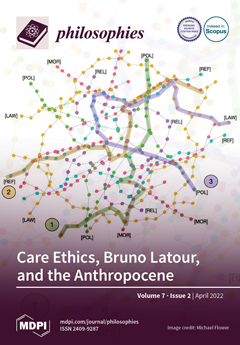Case, agreement, and A-movement dependencies across finite clause boundaries, such as Hyperraising (to subject or object) or Long-Distance Case or Agreement [LDA], are available in many typologically diverse languages. The research on such dependencies typically distinguishes between cross-linguistically restricted true A-dependencies across finite
[...] Read more.
Case, agreement, and A-movement dependencies across finite clause boundaries, such as Hyperraising (to subject or object) or Long-Distance Case or Agreement [LDA], are available in many typologically diverse languages. The research on such dependencies typically distinguishes between cross-linguistically restricted true A-dependencies across finite clauses, and generally available binding-like A
-dependencies as found in Prolepsis. In this paper, we investigate both types of configurations in parallel and refer to this as the
-domain. Since the diagnostics to distinguish
-configurations vary across languages and often cannot be compared directly, we define four characteristic properties: (A) whether the construction is restricted by matrix predicate selection, (B) whether movement in the embedded clause is involved, (C) whether the dependency shows locality restrictions (in particular, A-Minimality), and (D) whether there are semantic restrictions on the relevant DP. By combining different values of the characteristic properties, we show, differently from previous approaches, that the
-domain does not simply consist of two types of configurations, but that the empirical landscape represents a continuum of five
-constructions. We suggest a theoretical implementation of our empirical findings, which is built on a predicational relator phrase above the embedded CP and propose that, in some of the constructions, these two projections fuse into one. We employ a minimalist probing approach which relies on differences in the base-generated position of the relevant DP (matrix clause, high in the embedded clause, argument position in the embedded clause), differences in the feature composition of the embedded C (a plain A
-head, or a bundled predicational C head involving composite A/A
probes), a composite probe hierarchy yielding three types of feature-dependencies of composite probes, and, resulting from that, different probing mechanisms (conjunctive satisfaction, dependent satisfaction, and independent satisfaction). Lastly, this paper also contributes methodological tools for disentangling constructions of the
-domain.
Full article





